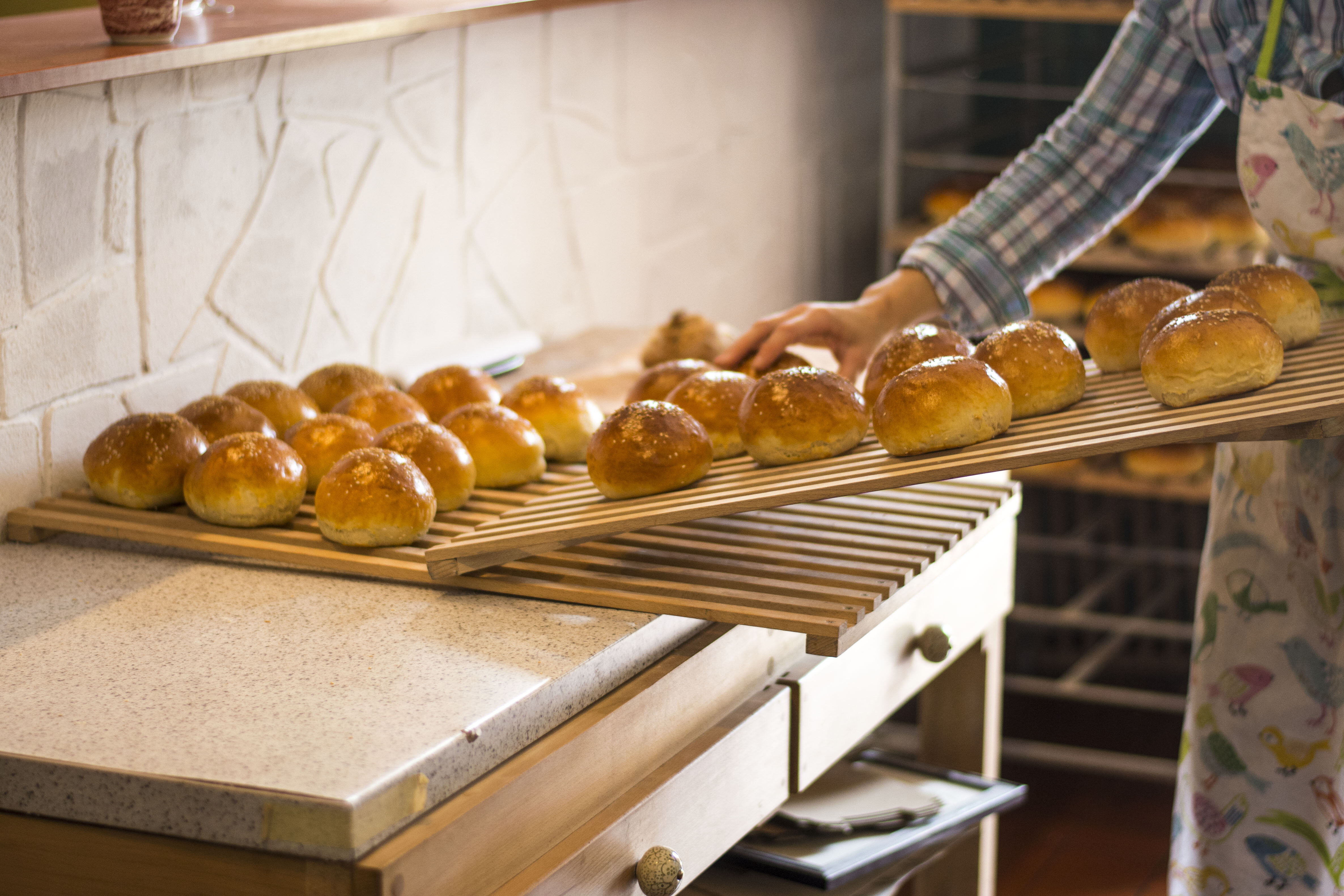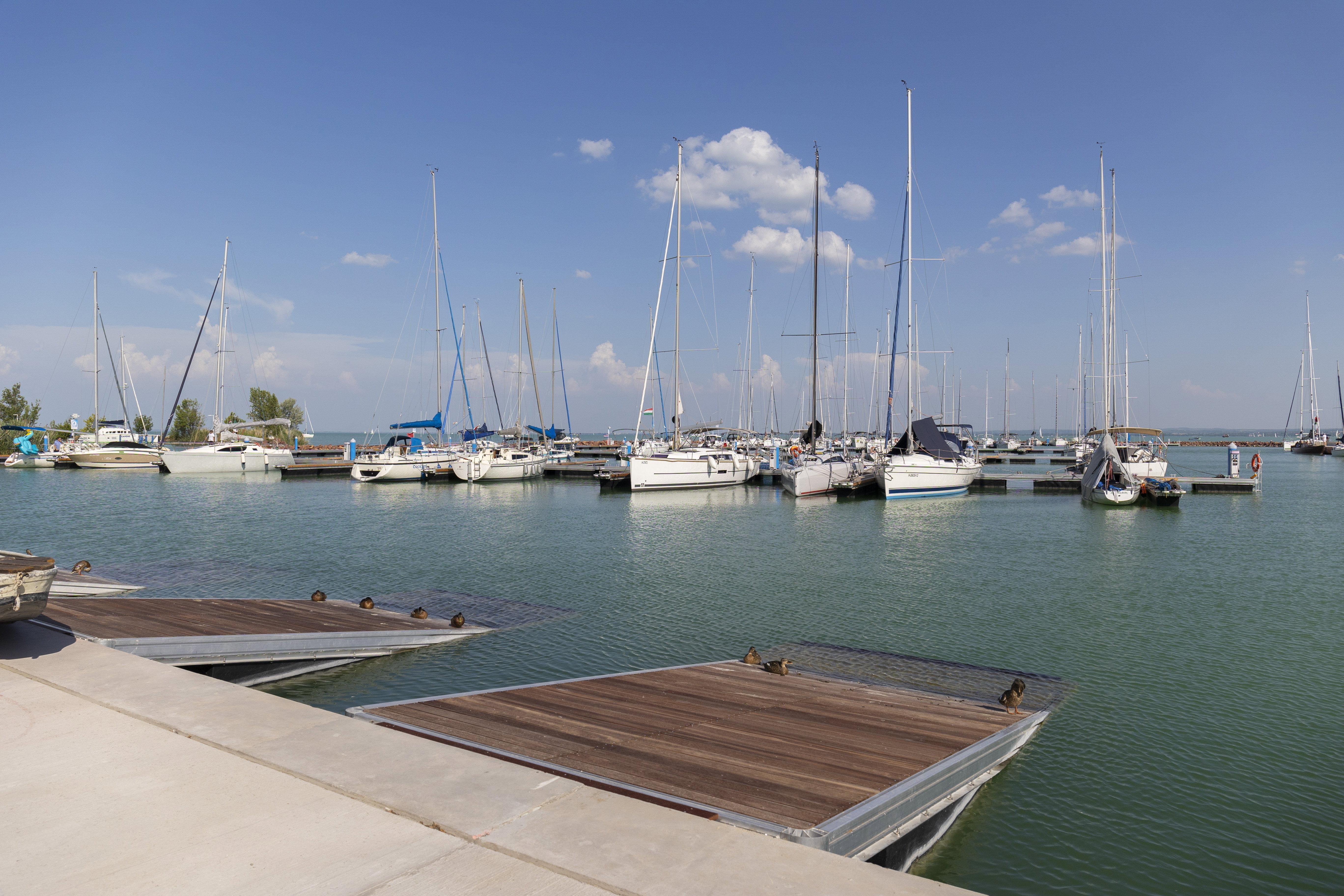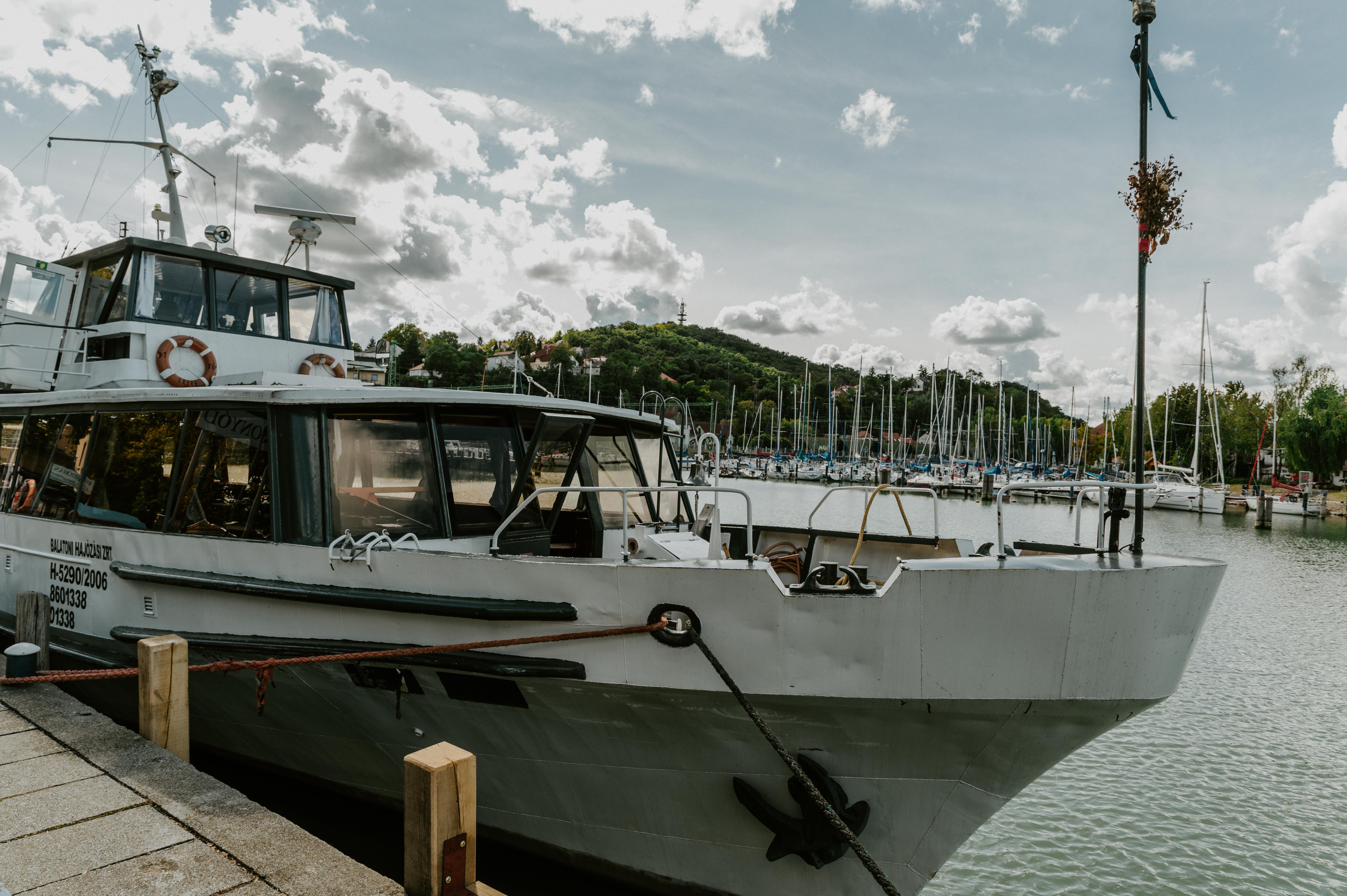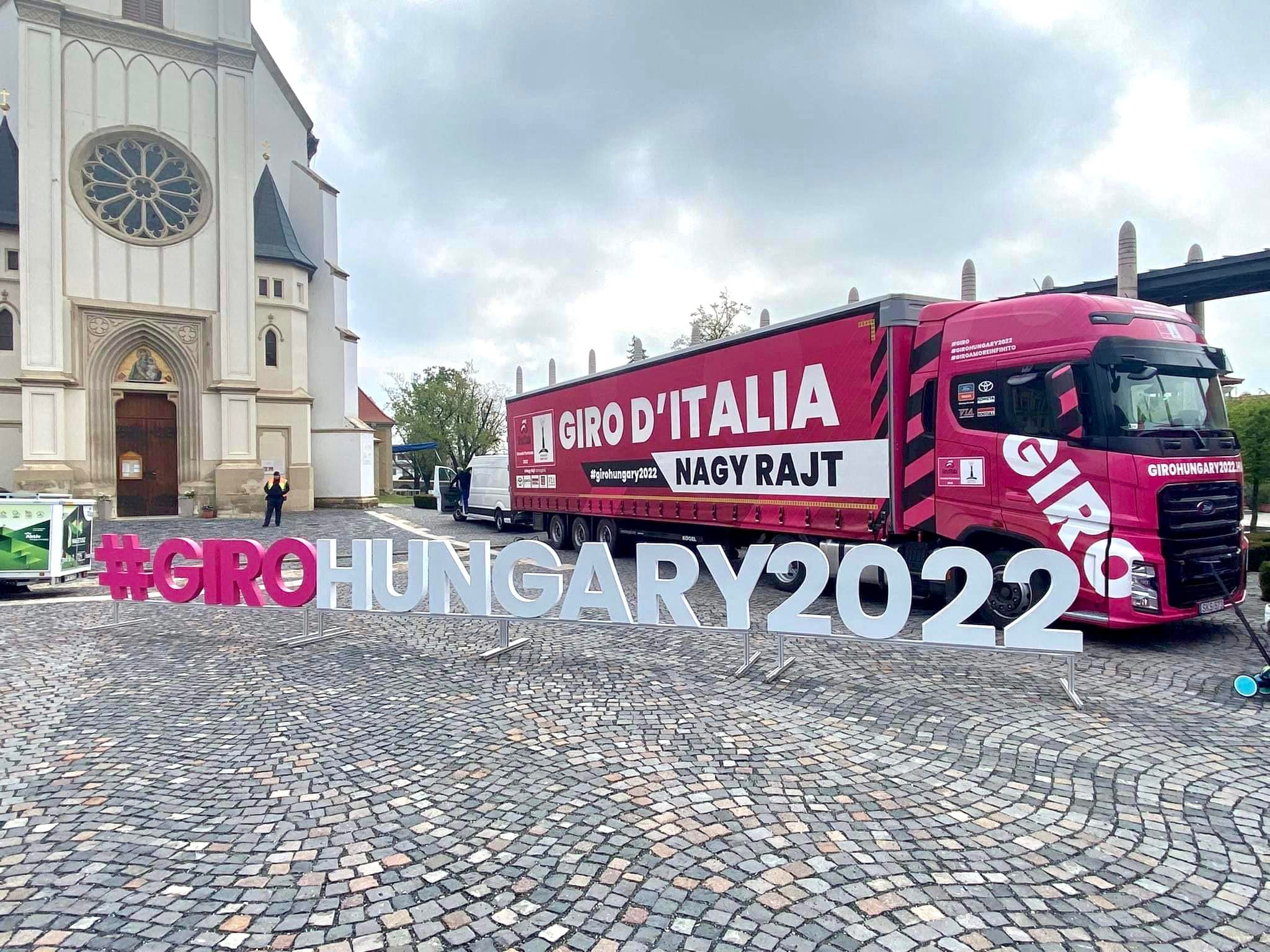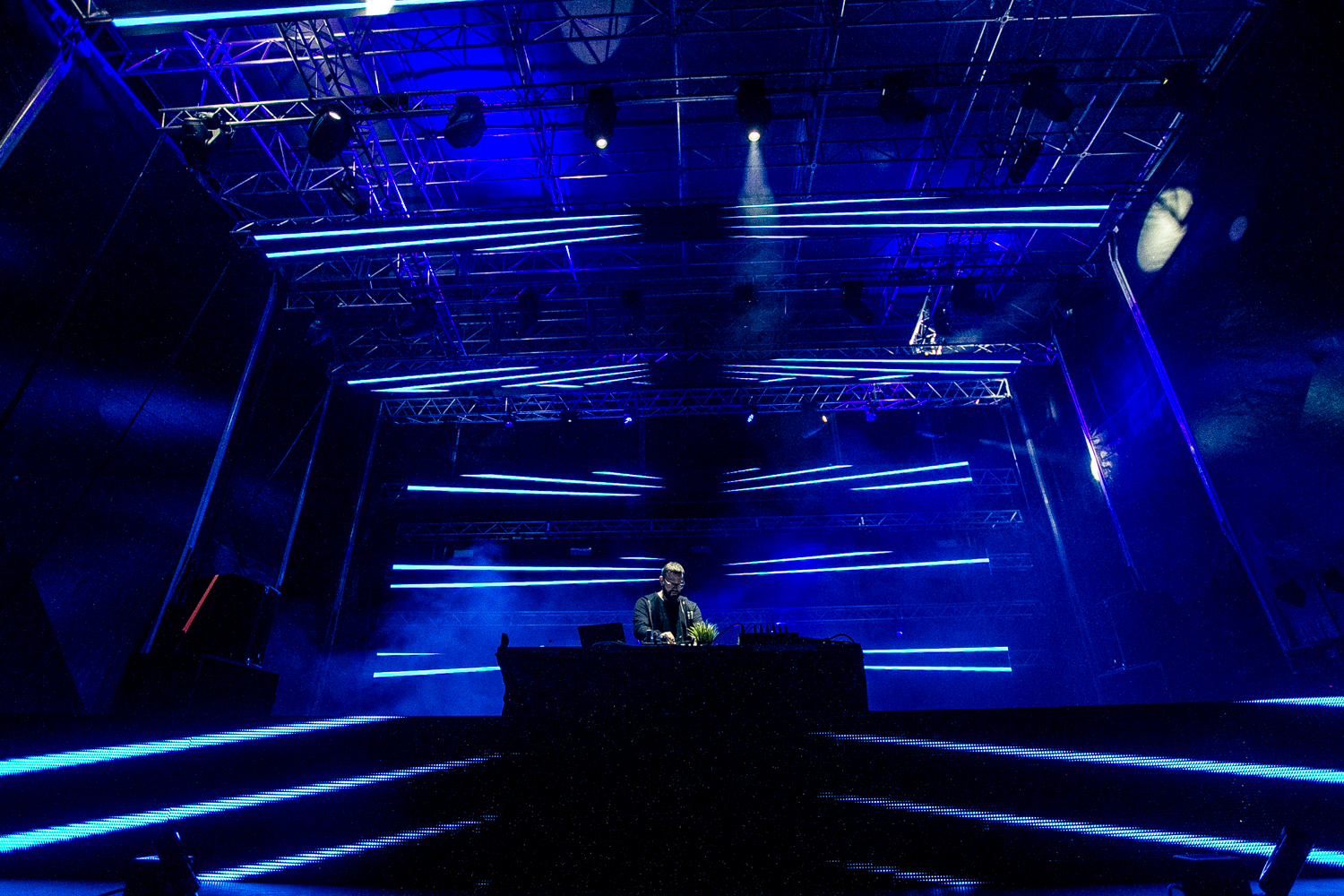On Thursdays between noon and 3pm, the divine fragrance of freshly baked bread fills Kisapáti, found by the foot of Szent György Hill, which comes from behind a plain door at the back of the local Mini Coop grocery store. There’s no shop sign, but the lovely smell and the floury stairs will tell you that you’re in the right place if you’re looking for Bea Kovács, the young lady running Búzalelke Bakery. Bea moved from the capital city to the middle of the Balaton Uplands five years ago, quitting her well-paying job in the media to grow grapes. However, fate had other plans: instead of grapes, she’s baked the best breads in the region for the past two and a half years.

WeLoveBalaton: How did you end up here?
Bea Kovács: Because of a relationship I was in at the time, I used to be based in two places, and we used to spend all of our free time here in the vineyard. I had a job in the media in Budapest, and I was due to get promoted when I suddenly felt like I had to make a choice: I could either stay where I was or start anew at Lake Balaton. Baking came later, but at exactly the right time. During the difficult times it would always cheer me up when I got a call to bake bread. I felt that I was needed, that I could nurture people - this has been my strongest motivation to this day.

WLB: What can you tell us about Balaton in wintertime?
BK: In the first couple of years I spent a lot of time alone up on the hill, and the winters were particularly harsh. I was suddenly faced with knee-deep snow and the kind of challenges I’d never had to tackle in Budapest. When the snow got really bad, we needed to move the car down to the village to make sure that we were not completely cut off from the outside world, but we needed to make the way to the car on foot. I was the first one to cut two paths through the snow, one leading up and another one leading down - the pace is different in both directions. In winter the sun came up late and it went down early, and even though I wanted to be outside, I fled back to the safety of the house. Later I moved to the village, but as funny as it may sound it feels crowded to me. Up on the hill I got used to not having to draw the curtains because no one ever goes up there. Moving back to a big city is completely unfathomable.
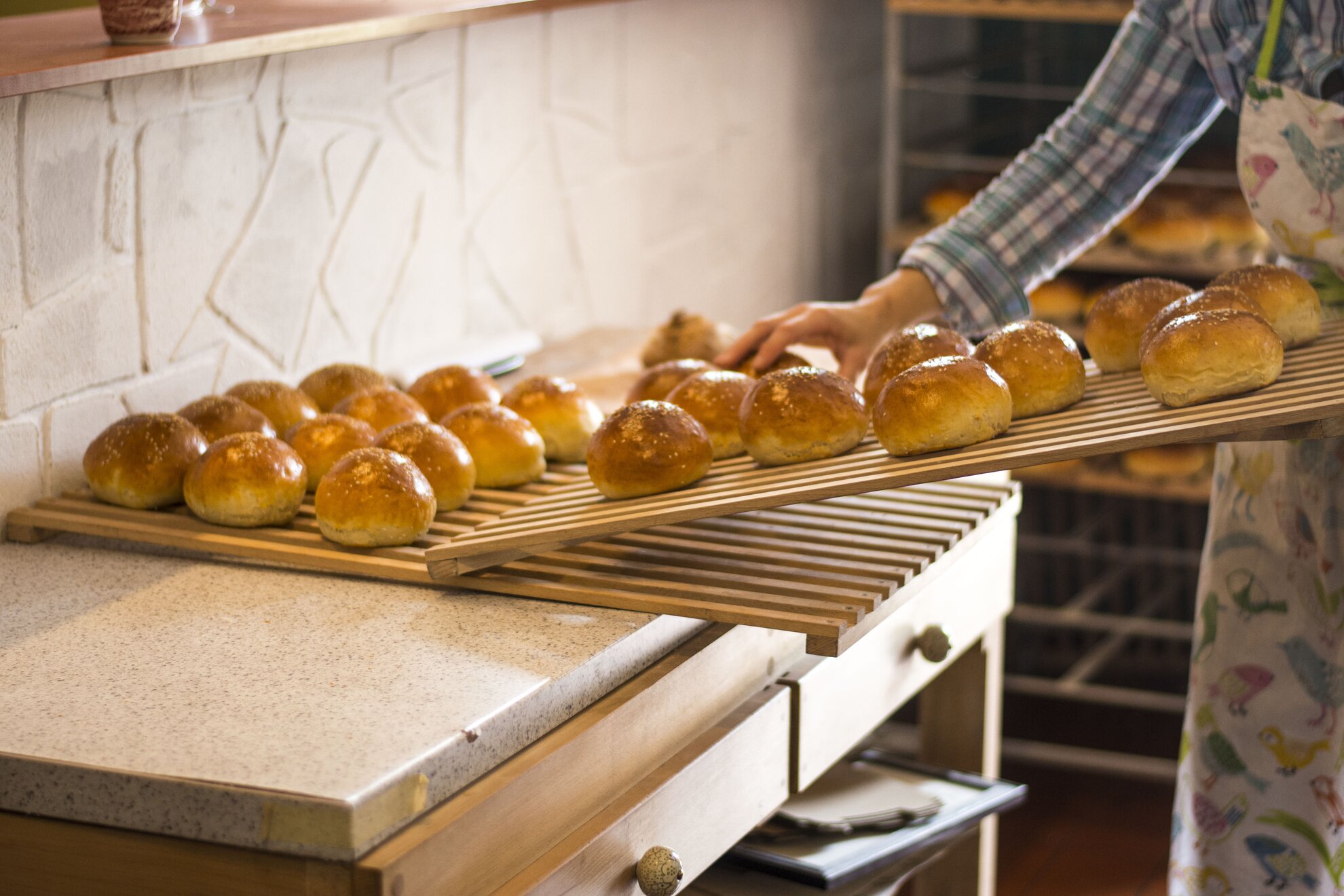
WLB: How did the local people react when you moved here?
BK: For now I’m somewhat isolated in Kisapáti: the locals aren’t particularly open, but I haven’t tried befriending them yet either. In the long run, I hope that we can build a good relationship, but it looks like it might happen naturally. They can see that I’m a hard worker, which they can appreciate and respect. My breads are not purchased by the people living here; my clientele is made up mainly by vacationers and those who’ve moved to the village from somewhere else in Hungary or abroad. I sell most of my products in Tihany and the market in Káptalantóti.

Over the years the community around me has evolved, and by now I have a circle of people I know I can count on. There are some I have a less deep work relationship with, and others I’m really close to. It gives me immense strength to know that there are other people like me: they get up early, and work hard making their own products to make their customers happy. I’m absolutely grateful to those who’ve been with me and loved my breads since the beginning, and have come back time and time again.

WLB: What does this big lake mean to you?
BK: I think Balaton’s fantastic. I love to take a dip; it makes me feel like a kid again. The energy of water is very important to me. I don’t even need to see the panorama, it’s enough to know that the lake's close by. But the hill has an equally crucial place in my heart: when I’m up there the space opens up, and the world around you becomes tiny. Cars may come and go, and the village may be full of people, but the hill lifts you out of that setting.

WLB: What are your plans for the future?
BK: I have tons of plans both in my private and professional life. I’m mainly looking to achieve growth in terms of quality, and not numbers. There’s a whole science behind baking with an ecosystem of yeasts and lactic acids; it’s important to learn about the exciting processes happening in this miniature world if you want to bake delicious bread.

When it comes to gluten intolerance, I’m on the side of the crops. I believe that using ancient ingredients of the best quality can’t be bad for you, and the needs and workings of our bodies is essential to consider during baking. My breads don’t melt in your mouth immediately like the artificial breads you can get at the store; you have to chew them, it’s a natural process, that’s how you can break down the nutrients in the most optimal way.

WLB: Don’t you miss your job in Budapest?
BK: I don’t. However, I’ve realized over time that everything we do is the same when it comes to its essence and aim; only the form and tools are different. I like it when things have beginnings and ends, and there’s work in between where you have to solve problems and reach goals. I’m a musician by profession, and I used to think the same thing when I was a conductor, or when I worked in the world of the media. Now that I’m running my bakery, and I’m driven by my own desires toward my own goals, I couldn’t imagine doing things differently. I see the same cyclical trend everywhere from the tiniest processes to such big things as life itself. In all this, music plays a significant role for me, and that’s something I can find here as well.
